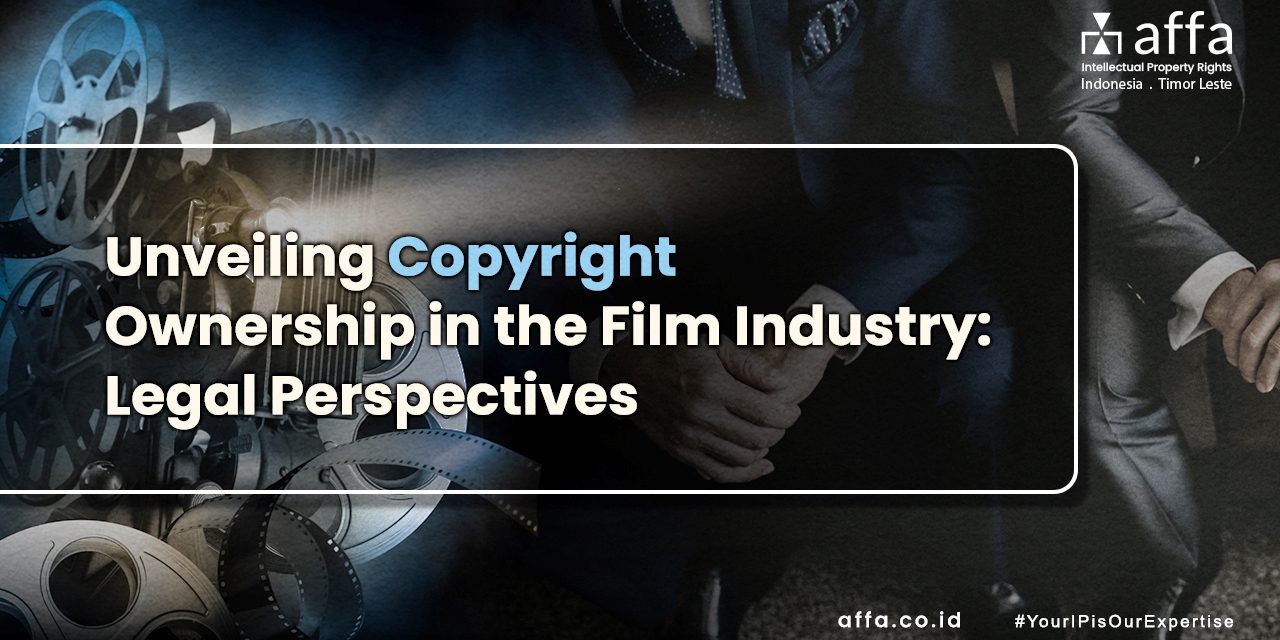Unveiling Copyright Ownership in the Film Industry: Legal Perspectives
There is still often a question among the public about who owns the copyright for a large-scale work, such as a movie. Because movies, especially feature films, involve many derivative works and other interrelated supporting works. Starting from scripts, background music, movie posters, and even a game specifically made to promote the movie.
So, who owns the copyright of all these works? Does the Director hold everything? Producer? Or both of them?
Definition of Copyright
According to Article 1 of Law No. 28 of 2014 concerning Copyright (Copyright Law), what is meant by Copyright is the Exclusive Right of the Creator, which arises automatically based on declarative principles after a work is realized in actual form without reducing restrictions by the provisions of statutory regulations.
From the definition above, there are two essential emphases of Copyright as follows:
1. Exclusive Rights, consisting of:
-
- Economic Rights
The Exclusive Right of the Creator or Copyright Holder to obtain economic benefits from the Work
-
- Moral Rights
Rights that are eternally inherent in the Creator
2. Arises automatically based on Declarative Principles
No recording or registration is required to obtain protection.
Then, a Creator is a person or several people who produce a creation individually or together. Movies in the Copyright Law are referred to as Cinematography as mentioned in Article 40 Paragraph (1) letter (m), which means moving images, including documentary movies, advertising movies, reportages, or story films made with scenarios, including cartoon or animation films.
Cinematography works can be created on celluloid tape, video tape, video disc, optical disc, and/or other media that allows it to be shown in cinemas, big screens, television, or other media.
Copyright Holders of Movies/ Cinematography Works
In general, 3 (three) parties are referred to as Copyright Holders, namely:
- Copyright Owner/Creator
- The party who legally receives the rights from the Creator
- Another party who receives further rights from the party who received the rights
However, if we talk about specific copyright holders for movie-related products, the details are as follows:
| Movie Related Products | Types of Creation | Notes |
| Original/ raw/ in-editing process/ final movie. | Copyright for Cinematographic Works |
|
| Script/ Story | Copyright for Written Works |
|
| Book – If the film is adapted from a book. | Copyright for Books/Writing Works |
|
| Book – If the film is adapted into a book. | Copyright for Books/Writing Works |
|
| Background Music (BGM), scoring, soundtrack, sound effects, or other related music works. | Copyright of Songs and/or Music |
|
| Movie posters | Copyright for Drawing/Painting Artworks |
|
| Movie Exhibitions/ advertising/ promotions (photography, banners, etc.) | Copyright for Photographic Works, Portraits, Databases, Video Games, Computer Programs, Appearances in the form of Written Works |
|
Knowing who the creator of the creations above is, if you are involved in them, especially if your position is the creator, you are entitled to Exclusive Rights to cinematographic works, valid for up to 50 (fifty) years from the first announcement.
Benefits of Copyright Recordation
Also, please ensure your name is recorded in the Creation Recordation Letter issued by the Minister and in the General Register of Works, which serves as initial proof of ownership of a work and is substantial evidence in court. Even though it is not mandatory, Copyright recordation is beneficial for the following 2 (two) things:
- Prevent misuse of recorded works and simultaneously prevent losses arising from abuse of said works.
- Make it easier for Copyright owners to claim royalties for recorded Copyright licenses.
Should you have further questions regarding Copyright and its registration in Indonesia and abroad, do not hesitate to contact us via [email protected].
Sources:
- Law Number 28 of 2014 concerning Copyright (Copyright Law)
- Directorate General of Intellectual Property (DGIP)








1 Comment